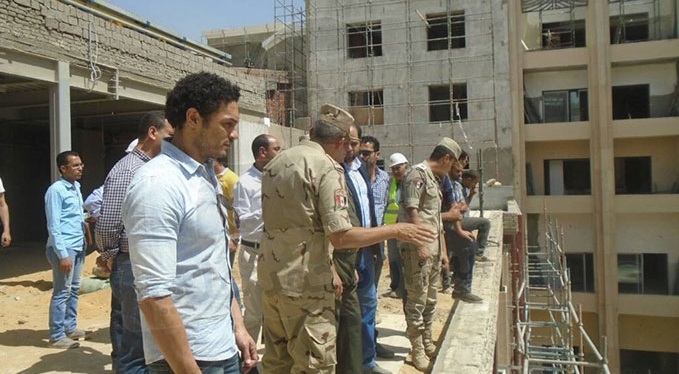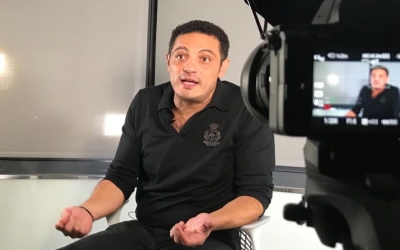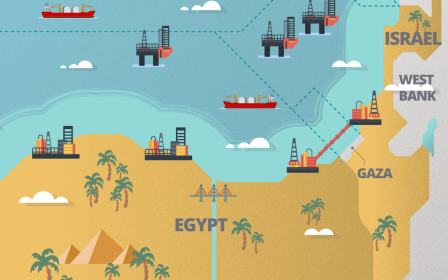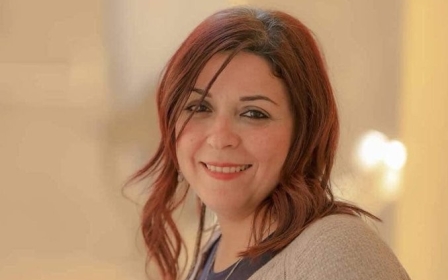How to build a luxury hotel in Egypt, according to Mohamed Ali

Want to build a luxury hotel in Egypt, but don't have any plans, feasibility studies or even money?
No problem, says military contractor-turned-whistleblower Mohamed Ali. You simply need to be a high-ranking military official with President Abdel Fattah el-Sisi's ear.
'There is no such thing as feasibility studies. There is a thing of based on your desires'
- Mohamed Ali
"For example," Ali told Middle East Eye this week, "I am a commander from Alexandria and I would like to please my area, and friends and loved ones.
"I would say, 'I want to build a hotel in Alexandria', and OK, he will give you a permit for a hotel in Alexandria. Things are run by nepotism."
For 15 years as a contractor, Ali built these hotels - and villas and palaces - for the armed forces, including projects worth around 1bn Egyptian pounds (today $61m) for Sisi alone, he said.
New MEE newsletter: Jerusalem Dispatch
Sign up to get the latest insights and analysis on Israel-Palestine, alongside Turkey Unpacked and other MEE newsletters
Over a wide-ranging two-hour interview with MEE from a secret location in Spain earlier this week, the 45-year-old outlined exactly how the system worked.
Ali said projects were often decided casually on the whims of military officials. "There is no such thing as feasibility studies. There is a thing of 'based on your desires'," he said.
"While we're sitting, having tea, we say, 'Let's suggest to the president to build five, six clubs, as a business for us'. And you have a meeting with him personally. You will receive approval for five or six clubs."
Once a project was identified, Ali said, the army would write a letter to banks telling them to lend money to a contractor while promising to act as a guarantor. The contractor was to use the letter to get loans.
"Its purpose was to expedite the implementation of the projects, to impress Sisi and to make the people happy with Sisi’s achievements," he said.
'The army would only give you part of your money, as long as you’re working with them'
- Mohamed Ali
But the letters often failed to do the trick: the banks refused to pay unless contracts were drawn up and the military, he said, almost never formalises contracts, especially when it comes to projects that are "gifted" to Sisi and his inner circle.
"We went back to the army and told them about the banks’ response. They said, 'OK, pay from your pockets until we finalise the contracts'," he said.
So contractors like Ali are often caught up in the army’s system, frequently paid only portions of the amounts they are supposed to be paid and only able to walk away if they are willing to forfeit earnings.
“The army would only give you part of your money, as long as you’re working with them. It gives you [your money] bit by bit,” he said. “It acts in a way that you always stay linked to it."
He added: “I could have easily taken my money, and more, and continued with them until today and I would have made billions, and not only the 220 million [that they owe me]. There are military officers that have billions.”
Two billion pound present
Without feasibility studies or formal contracts, which Ali said the army just doesn't use, he described impromptu planning and dangerous building sites.
One of the best examples, Ali said, was the Triumph Luxury Hotel which he built for 2bn Egyptian pounds ($120m in 2017) in New Cairo for Major General Sherif Salah el-Din.
"Can you imagine someone making nice with his colleague with two billion?" he said of the project.
Sherif, known to be a close confidante of Sisi, was living in a house opposite to where the hotel was being built and watched its construction from his balcony, Ali said.
"We met with him and asked him how many rooms he wants in the hotel. Then he would say, '100, 200'. You feel you are talking with a snack seller," Ali said.
"[You ask] 'How many restaurants?' He calls his friend, asking for his opinion," Ali said. “'Hey friend, I'm working on this project, ordered by President Sisi, and thinking how many restaurants to have in it. What do you think? Shall we do two or three?'”
During the hotel's construction, Ali said he and others raised concerns with a general about one worker’s safety.
“‘Let him burn,’ he said,” Ali recalled. “The most important thing for them was to finish on time and show Sisi that the project was done.”
Also key was the ceremony around the inauguration of the project, Ali said. "This is how you guarantee you will not lose your position," he said.
To open the Triumph in March, the general reportedly hosted actors, artists and businessmen, with performances from Egyptian singers Mohamed Hamaki and Carmen Suleiman until the early morning hours.
Today, Ali said, the hotel, which is located in a residential area, has "no value", and is only useful for members of the armed forces who get reduced rates to hold their weddings at the venue.
Middle East Eye delivers independent and unrivalled coverage and analysis of the Middle East, North Africa and beyond. To learn more about republishing this content and the associated fees, please fill out this form. More about MEE can be found here.





